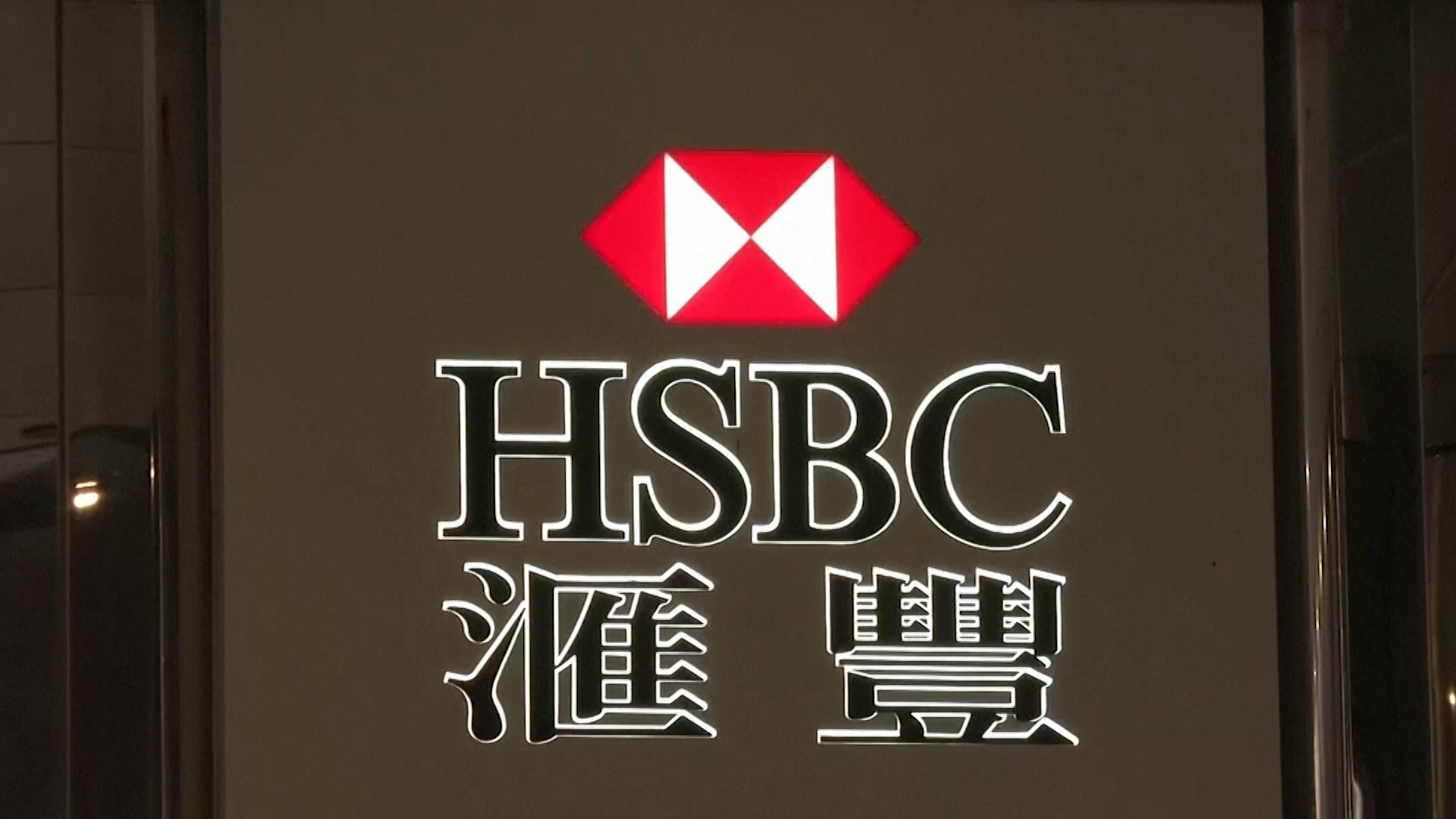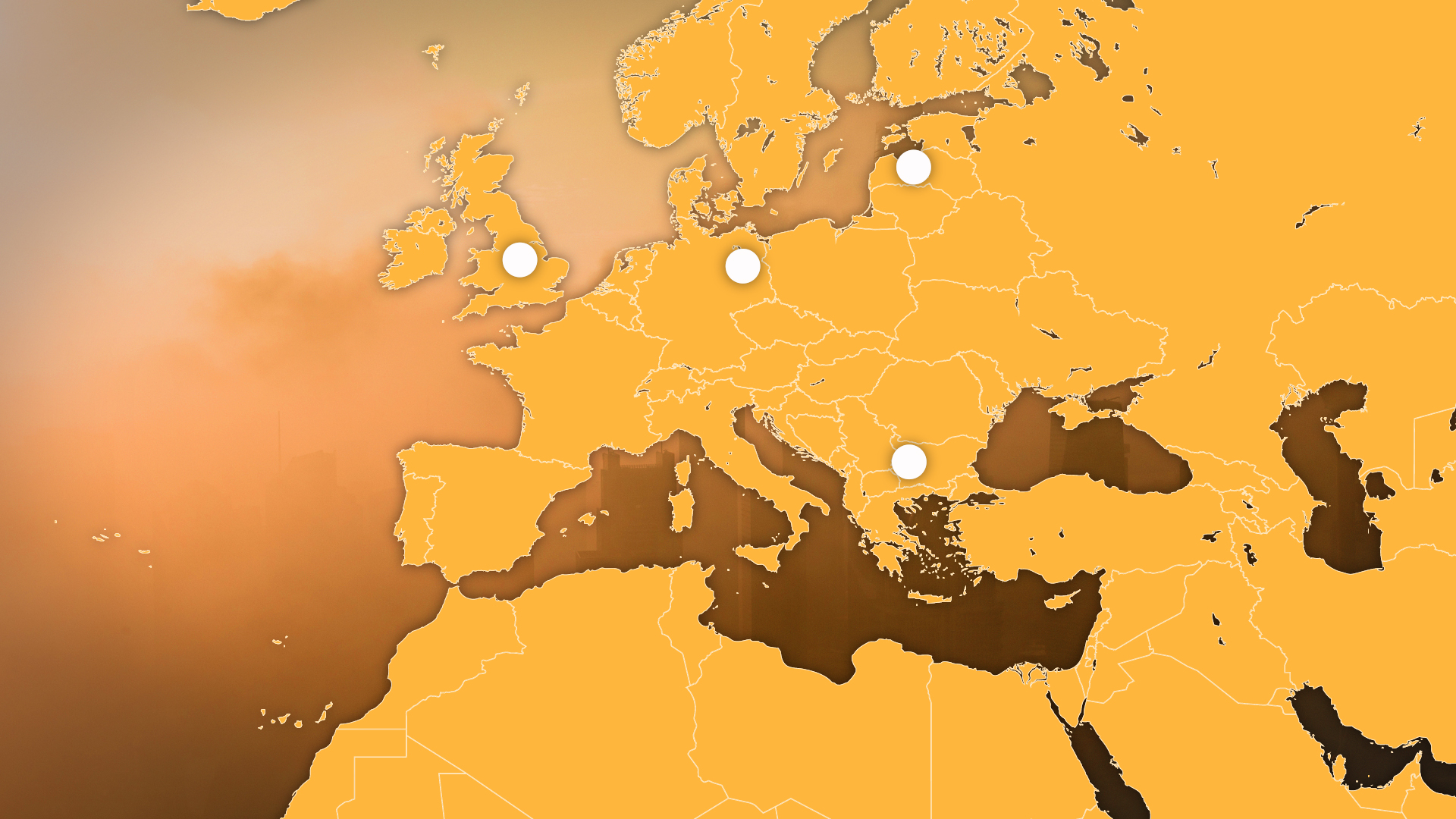"Europe is over-banked. If you look at the number of banks per customer, it's higher than most other parts of the world. And therefore it's hard to make money from banking in Europe."
That's the view of Trevor Williams, the former chief economist at the commercial division of Lloyds Bank.
He was commenting on the dramatic fall in** HSBC profits** - a full third - which has led them to announce a mammoth round of job cuts, mainly in the UK and US. Our correspondent Holly Hudson was in London's Canary Wharf, and you can watch her report in today's email.
Another firm reeling from a drop in profits is Nissan - which has just appointed a new CEO, Makoto Uchida. He laid himself a challenge this week, telling shareholders he should be fired if he fails to turn company's fortunes around.
Elsewhere, **Singapore **is following the lead of other major cities and will ban all but electric vehicles by 2040. Finance minister Keat also announced a 26,000+ increase in electric charging points in the city state, all by 2030.
We also heard from** ING Germany chief economist **Carsten Brzeski, who explained how the central European economy has more to worry about than just COVID-19. Be sure to scroll to the bottom of today's email so you don't miss this fascinating read.
And for anyone who might have missed my earlier appeals - please do share this briefing far and wide.
Signing up is free, and can be done with just a few clicks right here
.
Happy reading,
Patrick Atack,
Digital business correspondent

HSBC has revealed plans to slash 35,000 jobs across its investment banking arms in Europe and the U.S.. The drastic cuts come after the international bank admitted its profits had fallen a third over the last year. The bank said it hopes to save $4.5 billion via cuts by 2022. Pre-tax profits fell to $13.35 billion from $19.89 billion.
Following Nissan's profit warning last week, and its first quarterly loss in nearly a decade, the Japanese car maker's new chief executive Makoto Uchida spoke to shareholders in Yokohama - and made a pledge to turn the firm's fortunes around, or quit. "I'm taking over these tough circumstances with strong determination," he said, adding if his team fails, " you can fire me immediately ."
Tech giant Apple has warned shareholders to expect it to miss the Q1 revenue advice it had previously given, due to "a slower return to normal conditions than we had anticipated" following the COVID-19 outbreak. With the outbreak already on its radar, Apple had given a wide range of possible growth stats, but it did not revise these figures, or give a date it expects factories to be back at full capacity.
Singapore will aim to **ban petrol and diesel-fueled cars **by 2040, according to finance minister Heng Swee Keat. The city state is encouraging drivers to switch to electric with policies such as a rebate on electric vehicle registration fees, and increasing the number of public charging points to 28,000 by 2030 from 1,600 today.
The latest stocks eligible to trade on the Hong Kong Stock Connect scheme have been announced, and as expected, Chinese e-commerce giant Alibaba Group was not included. That's despite the company's secondary listing on the Hong Kong exchange in November.
China's annual auto show in Beijing has been postponed because of COVID-19. The** Beijing International Automotive Exhibition **was scheduled to begin 21 April, but is the latest high-profile event to be either cancelled or postponed over coronavirus concerns. A new date will be announced, according to the organizers, but no new date has yet been decided on.
French finance minister Bruno Le Maire warned car maker Renault not to cut jobs in France, after it announced its first loss in a decade and promised to cut back by approximately $2 million. "The state will play its role as shareholder in Renault to make sure that the choices which will be made will not go against jobs and factories in France," Le Maire said .
Holly Hudson was in London's financial hub, Canary Wharf, and sent us this report on the reasons behind HSBC's profit slide.
02:01

Carsten Brzeski is ChiefEconomistatINGGermany, and joined CGTN to discuss the medium to long-term impact of COVID-19 and whether it's the biggest challenge facing one of Europe's leading economies.
Carsten Brzeski, thank you very much for taking the time to talk to us. How badly do you think Germany's economy has been hit by the COVID-19?
I think when you look at the German industry, the economy depends on 10 percent on re-import from China. This is significant. German automotive (firms) are clearly highly dependent on their exports going to China. It is still very hard to come up with exact figures.
But the fact is here that we are already in a manufacturing slump in Germany and the coronavirus will clearly delay any rebound so that the German slump will continue throughout the first quarter. And at the earliest, we would see a small rebound in the German manufacturing sector in the second quarter.
Which industries do you think are most vulnerable?
For Germany, it's obviously automotive because I think that simply the Chinese demand for automobiles in these months will drop down like a stone. That is one, the chemical industry is also suffering and electric engineering is also suffering.
So when you look at the different sectors in Germany, I think the only sector in the German industry which is not suffering right now is probably food and retail.
You mentioned that Germany is going through a slump. But overall, how resilient do you think Germany's economy is going to be?
You look at the entire German economy, there has been a split between the manufacturing sector, already being in this slump for several months, even without the virus. And then there is domestic demand, a strong labor market, strong private consumption, which has helped the German economy to at least stagnate at around zero percent growth.
So the virus will clearly put more pressure on the industry. The virus, I think, has not spread so far to really affect German consumer spending.
So, we will see that the impact will mainly be on the manufacturing industry. I think that when springtime comes, we will also see that the coronavirus impact on the German economy will fade away and that then the structural problems of the German economy will reemerge.
And this is the lack of investment, a lack of digitalization, a lack of infrastructure. And all these factors have nothing to do with the coronavirus. But they are, I think, of more importance for the growth outlook for the German economy than the short-term virus impact.
Do you think these companies are using coronavirus as an excuse for their poor results?
I think, you know, take a step back, look at the German economy since the summer of 2018 when it was almost overheating. Since then, we had so many so-called one-off factors.
It was too little water in the rivers. We had the diesel scandal, we had another emissions standards issues in the automotive sector that then, we had the trade war. Now we have the virus. So there is continuously a series of external events having an impact on such an open economy, which means if this economy wants to be less vulnerable to all these external events because we cannot prevent them from happening, the German government needs to invest more, strengthen domestic demand and not only on a consumer base but also really for corporates to get more investment. Corporate investment back into the economy.
Have you read the Z.E.W. Research Institutes' findings? What are you thinking about those results?
When you look at the Z.E.W. indicator, really watch out, this is an indicator financial analysts have filled in. So this is more how financial markets currently look at the German economy. And obviously there is the coronavirus. This is also the volatility we had on financial markets over the last couple of weeks, which is reflected in this significant drop in the Z.E.W. indicator.
The Z.E.W. indicator is not a good leading indicator for the German economy, to get a better gauge on what actually the real economic impact from the coronavirus is on the German economy. We need to wait for the Ifo index, which will be released next week.
What do you think it is going to say?
I think the entire economy is flirting with stagnation. The manufacturing sector is flirting with recession. Now the coronavirus, there is a new element of uncertainty and uncertainty clearly does nothing to bring the German economy quickly to a rebound.
So, therefore, we will see another stagnation at best, and which means that probably we can forget about the first quarter in terms of a real, feasible, tangible rebound of the German economy. And we need to hope for springtime so that when the coronavirus disappears, more investment is coming and maybe a fiscal stimulus by the government before the economy really starts to lift off again.
These European cities, Leicester (UK); Berlin (Germany); Riga (Latvia) and Sofia (Bulgaria) are the newcomers to the list of cities judged to be fighting hardest against climate change, according to CDP, the CarbonDisclosureProject. It's a charity that runs global disclosure systems for the environmental impact of companies, cities and even regions.
The "A-List" of 105 global cities is made of localities "demonstrating strategic best practice" in combating climate change and cutting carbon emissions.

 简体中文
简体中文

